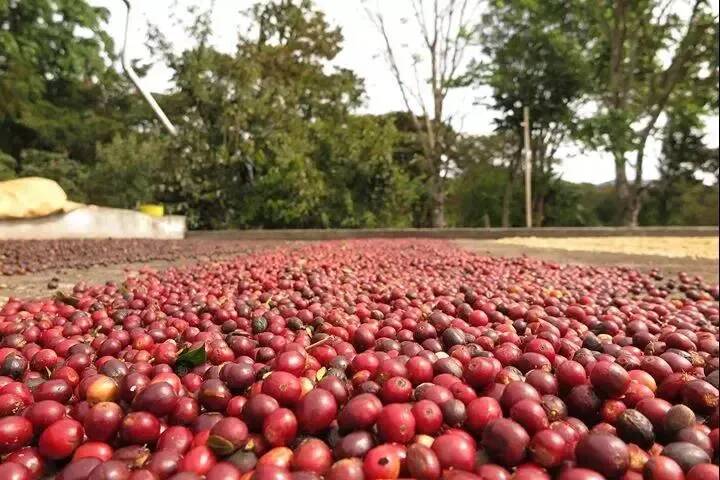Ethiopia's foreign exchange reform! Exchange rate plunged 30% in one day
On July 29, the National Bank of Ethiopia announced a major revision to the country's foreign exchange system and implemented it immediately. He said that the reform introduces a market-based competitive exchange rate determination mechanism, which will solve long-term problems in the Ethiopian economy.
According to the announced foreign exchange reform, it is mainly a shift to a market-based foreign exchange system. A series of transformation measures include shifting to a market-based exchange rate system, allowing exporters and commercial banks to retain foreign exchange, lifting import restrictions previously prohibited for 38 product categories, allowing exporters to retain their foreign exchange earnings and increase it to 50%, establishing non-bank foreign exchange sentences, simplifying foreign currency account management rules, providing subsidies for residents to external foreign currency accounts, and abolishing the interest rate cap when borrowing from abroad. Opening the Ethiopian securities market to foreign investors and relaxing restrictions on the amount of foreign currency carried in and out of Ethiopia.
The Ethiopian government believes that foreign exchange reform is crucial to solving serious foreign exchange shortages, improving export competitiveness, attracting foreign direct investment, and complementing many other macroeconomic reforms to improve the conditions for the private sector to grow and prosper in the Ethiopian economy.

It could benefit millions of Ethiopians in multiple foreign-generating sectors, such as farmers involved in the production of exportable crops such as coffee, sesame seeds, beans and flowers, herders exporting cattle and meat, workers in mining and other industries, and thousands of companies in the services and tourism sectors.
It is understood that Ethiopia's economy has grown rapidly in recent years, but foreign exchange shortage has always been a major problem in the country's economy. Therefore, over the years, Ethiopia has implemented strict foreign exchange controls to control capital outflows and stabilize the exchange rate.

However, this strict foreign exchange control has also brought many problems, resulting in opaque transactions in the foreign exchange market, rampant black markets, and difficulty for enterprises and investors in obtaining foreign exchange. This is why the revision of foreign exchange policy was made. In addition, Ethiopia's partners (the International Monetary Fund and the World Bank) provided US$10.7 billion in financing support for this reform.
However, shortly after the mechanism was released, the foreign exchange rate fell significantly. According to the Commercial Bank of Ethiopia, the buying rate reported by the Commercial Bank of Ethiopia changed from US$57 Birr to US$74 Birr, and the selling rate changed from US$58 Birr to US$76 Birr. The depreciation was as high as 30%. Today, July 31, the Commercial Bank of Ethiopia released the latest exchange rate of 80 birr to 1 US dollar. For this reason, some local residents said that there was no possibility of an exchange rate of 100 birr to 1 US dollar.
For coffee, Ethiopia's main export commodity, the devaluation of the Ethiopian currency birr will help improve the international competitiveness of Ethiopian coffee and benefit exports in the short term.
In addition, the Ethiopian government decided to minimize the price impact of basic imported commodities such as fuels, fertilizers, medicines and edible oil through temporary subsidies and price changes. However, the prices of various consumer goods in Ethiopia have risen sharply, and some commodities have increased by 50%-100%, which has put a lot of pressure on local consumers. The cost of coffee planting will also increase. In the future, Ethiopian coffee prices may rise accordingly.
Important Notice :
前街咖啡 FrontStreet Coffee has moved to new addredd:
FrontStreet Coffee Address: 315,Donghua East Road,GuangZhou
Tel:020 38364473
- Prev

Introduction to Pichincha Province, a coffee producing area in Ecuador, South America
South America is rich in natural resources. The Andes Mountains run through almost the entire western part of South America and are one of the continents with many volcanoes in the world. The continent has a warm and humid climate, mainly tropical, with abundant rainfall, making it very suitable for coffee and other agricultural cultivation. There are many coffee-producing countries on the continent, such as Brazil, Colombia, and Ecuador
- Next

Use your life to pull flowers! The barista was threatened by a guest with a knife!
▲ Click to pay attention| Daily Boutique Coffee Culture Magazine Coffee Workshop On the afternoon of July 28, a thrilling scene occurred in a coffee shop in Mount Dongwang, Macau. The shop owner said that at about 4:30 in the afternoon that day, the wind was gentle and the sun was beautiful, and he usually received every guest who entered the store. At this time, a male guest suddenly became agitated
Related
- What grade does Jamaica Blue Mountain No. 1 coffee belong to and how to drink it better? What is the highest grade of Blue Mountain coffee for coffee aristocrats?
- What are the flavor characteristics of the world-famous coffee Blue Mountain No. 1 Golden Mantelin? What are the characteristics of deep-roasted bitter coffee?
- Can I make coffee a second time in an Italian hand-brewed mocha pot? Why can't coffee be brewed several times like tea leaves?
- Hand-brewed coffee flows with a knife and a tornado. How to brew it? What is the proportion of grinding water and water temperature divided into?
- What is the difference between Indonesian Sumatra Mantinin coffee and gold Mantinin? How to distinguish between real and fake golden Mantelin coffee?
- What does bypass mean in coffee? Why can hand-brewed coffee and water make it better?
- Unexpected! Ruixing Telunsu lattes use a smoothie machine to foam milk?!
- % Arabia's first store in Henan opens into the village?! Netizen: Thought it was P's
- Does an authentic standard mocha coffee recipe use chocolate sauce or powder? Mocha Latte/Dirty Coffee/Salty Mocha Coffee Recipe Share!
- What is the difference between Vietnam egg coffee and Norway egg coffee? Hand-brewed single product coffee filter paper filter cloth filter flat solution!

